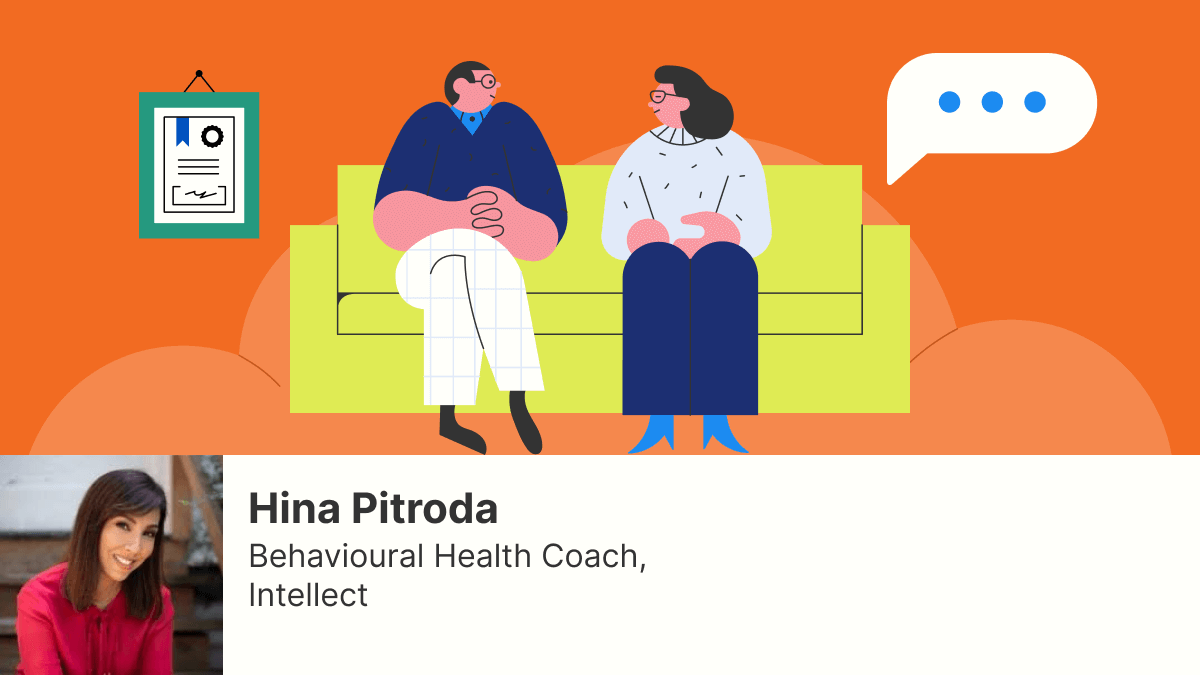The term “coach” may bring up different ideas about the profession. Often, people imagine an athletics coach—someone who coaches you to improve your swimming stroke or football technique. In Intellect’s context, however, coaching is targeted at one’s personal and professional fulfilment.
The International Coaching Federation (ICF) defines coaching as partnering with clients in a thought-provoking and creative process that helps them unlock previously untapped sources of imagination, productivity, and leadership. But what makes an ICF-accredited coach the right person for the job?
(Not sure if you need a coach, counsellor, or psychotherapist? Read this.)
What makes ICF-accredited coaches qualified?
When visiting a dentist or a doctor, we want to know that we are in good hands. We trust they have the required training and education. The same is true whether you seek an accountant, a lawyer, or a psychologist.
In the coaching industry, however, anyone can claim to be a coach. But rest assured that there are credentialing bodies, such as the ICF, that set stringent standards for education, training, and ethics for practising.
Having been in existence for over 27 years, the ICF awards credentials only after prospective coaches have met their requirements for education and training, and demonstrated a thorough understanding of ICF Core Competencies.
1. Education
To begin with, this means that the coach must receive their education through academic programmes accredited by the ICF. These programmes go through a meticulous review process to make sure that their curriculum meets ICF’s standards.
In addition, these institutions are themselves held to standards of ethics, integrity, and transparency about the education they offer and how it is structured. (For example, they must state exactly how many hours the student spends in live lectures, self-study materials, and online learning.)
You might be wondering: Do all coaches receive the same training? The short answer to that is no. The various institutions accredited by the ICF can, of course, have various curriculums and disciplines in addition to meeting ICF requirements. Consequently, their students’—your coaches—may practise various approaches (e.g. cognitive-behavioural) and theories (e.g. adult development) they resonate with.

2. Experience
Similar to how counselling undergraduates must fulfil at least 100 hours of practice before earning a Master of Counselling, coaches are held to comparable standards. The ICF accreditation assures you that your coach has completed the required hours of not merely learning but also practising with a diverse clientele. Coaches can choose to apply for the following designations after meeting the corresponding eligibility criteria.
ACC (Associate Certified Coach)
- Demonstrate fundamental knowledge of ICF Core Competencies, Code of Ethics.
- 60+ hours of coaching education
- 100+ hours of coaching experience
- 10 hours of mentor coaching with an eligible mentor coach.
- Successful completion and passing score in performance evaluation
- Passing score on ICF Credentialing Exam.
PCC (Professional Certified Coach)
- 125 hours of coaching education
- 500+ hours coaching experience
- 10 hours of mentor coaching with an eligible mentor coach.
- Successful completion and passing score in performance evaluation
- Passing score on ICF Credentialing Exam.
MCC (Master Certified Coach)
- 200+ hours of coaching education
- 2, 500+ hours of coaching experience
- Previous PCC Credential
- 10 hours of mentor coaching with an eligible mentor coach.
- Successful completion and passing score in performance evaluation
- Passing score on ICF Credentialing Exam.
Note: Each of these require continuing education hours that a coach must complete in allotted time. The continuing education must also be accredited by the ICF.
What can coaching do for me?
You may be thinking, that’s all well and good, but what makes a coach a better confidant than your family member, close friend, or mentor at work?
1. A coach provides neutrality.
While our support system may be perfectly solid, there are times where we cannot, and do not want to, turn to our loved ones.
You might be contemplating a job opportunity that involves relocating to another country, but you’re not quite ready to discuss it with your spouse. Sharing deeply personal matters, such as marital issues, with a mutual friend might colour their interactions with your spouse. In professional settings, approaching your manager about a colleague who undermines you could risk appearing petty. (Read more about how coaching can preserve boundaries within an organisation here.)
In such circumstances, an ICF-accredited coach offers an unbiased perspective. More often than not, they do not know the people in your life, and your decisions do not impact them personally. This neutrality allows them to serve as a sounding board, helping you explore your thoughts and feelings without fear of unintended consequences.

2. A coach offers a safe space.
When was the last time that you talked about a problem and someone really listened without interrupting, waiting for their turn to speak, or glancing at their phone?
In such situations, not only do we often feel unheard, but we also hold ourselves back for fear that we might be boring others with our problems. While no one is perfect, and we ourselves may occasionally falter as listeners, a coach is trained to remain client-centred, focusing solely on your needs throughout the entire 30- to 60-minute session.
This undivided attention can be incredibly powerful. When a coach listens deeply to you, they may keenly notice the lowering of your eyes, folding of your arms, changes in how fast or slow you speak, and other gestures that signal your internal state. This is a skill that ICF-accredited coaches must demonstrate according to the ICF Core Competency of Communicating Effectively – Listens Actively, especially those from institutions that incorporate mindfulness in their coursework.
When a coach can accurately interpret and validate your emotions, they create a judgement-free zone to explore your concerns more authentically and process unpleasant feelings that may come up.
3. A coach builds self-awareness.
At times, our confidants may be eager to offer advice. When most advice is well-meaning, unsolicited ones imply, “you don’t know enough” and “you can’t figure this out on your own.” Subconsciously, these messages can provoke resistance by positioning the advice giver as the expert. And even if we think we want it, advice from others may not lead to long-term solutions, because it doesn’t engage our creative thinking.
In contrast, coaching is not about “fixing” you, as coaches don’t see you as broken. Rather than offering solutions, a coach increases your awareness and shifts how you perceive yourself and the world. This is all done in recognition that you, like your circumstances, are unique. What worked for others may not necessarily work for you.
Beyond listening actively and providing emotional support, an ICF-accredited coach also facilitates deeper thinking by challenging our beliefs in a nurturing manner. Powerful questioning is a foundational element in ICF Core Competencies such as Listening Actively, Evoking Awareness, and Facilitating Client Growth.
Example
A client told me how close she is to her friends, rating her friendships as a 10 on a scale of 1 to 10 and emphasising their importance to her. Moments later, she mentioned having no one to talk to about her stress. Knowing that our coaching relationship is a safe space for her, I reflected this discrepancy back to her. This prompted her to pause and gain insight into her friendships for the first time.
Although relationships are inherently complex, reviewing our perceptions and assumptions about them —as my client did—can draw attention to beliefs (e.g. “I am a burden to others.”) and behaviours (e.g. not reaching out when we need to) that either support or hinder us.

What problems can a coach help me with?
Coaches help you address your current situation by changing your mindset and habits, all while keeping an eye on your future goals. It can be beneficial in any area where you feel stuck and desire growth in, such as:
- Career: If you struggle with meeting deadlines at work, a coach can work with you to manage procrastination behaviours.
- Relationships: If you want to communicate with your partner more skillfully, a coach can help you develop conflict resolution techniques.
- Physical health: If you wish to build healthier sleep habits or get back into an exercise routine, a coach can help you set and achieve incremental goals.
- Mental health: If you’re dealing with an inner critic. a coach can collaborate with you to address self-doubt, starting with self-compassion exercises.
When you decide to work with a coach, you retain complete control over setting your own goals. Our role is to help you structure these goals in a non-intimidating way while exploring ways in which you would like to be held accountable.
Now that you understand the training and expertise coaches bring, imagine how your life could transform with the support of a professional, compassionate, and non-judgmental coach. What new possibilities could unfold? I encourage you to explore and find out.








